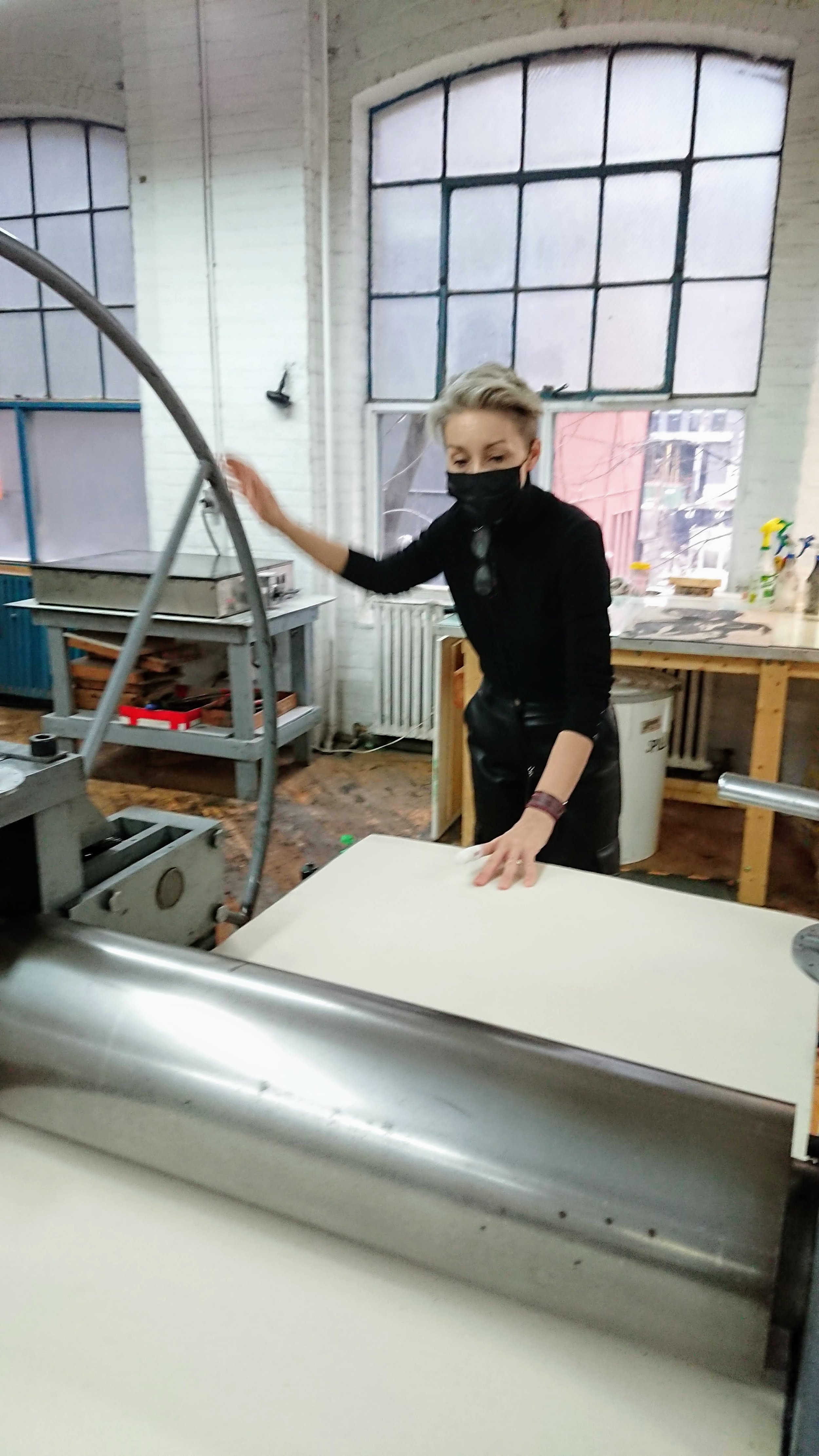STATELESSNESS 2, linocut by Monika Onoszko, limited edition
When during the first lockdown it turned out that we had lost the possibility to travel and the only option to move was to return to the country of which we are citizens, I thought about all stateless people. This linocut I dedicate to Badjao people (in English they are called The Sea Gypsies, but in my country, we call them "Fish People"), about which I heard for the first time from my Filipino friends and then when travelling in the Philippines. They are stateless people who, because they live on the water, were left without citizenship after dividing the territory between Indonesia, Malaysia and the Philippines.
In a black simple frame with mat.
When during the first lockdown it turned out that we had lost the possibility to travel and the only option to move was to return to the country of which we are citizens, I thought about all stateless people. This linocut I dedicate to Badjao people (in English they are called The Sea Gypsies, but in my country, we call them "Fish People"), about which I heard for the first time from my Filipino friends and then when travelling in the Philippines. They are stateless people who, because they live on the water, were left without citizenship after dividing the territory between Indonesia, Malaysia and the Philippines.
In a black simple frame with mat.
When during the first lockdown it turned out that we had lost the possibility to travel and the only option to move was to return to the country of which we are citizens, I thought about all stateless people. This linocut I dedicate to Badjao people (in English they are called The Sea Gypsies, but in my country, we call them "Fish People"), about which I heard for the first time from my Filipino friends and then when travelling in the Philippines. They are stateless people who, because they live on the water, were left without citizenship after dividing the territory between Indonesia, Malaysia and the Philippines.
In a black simple frame with mat.






